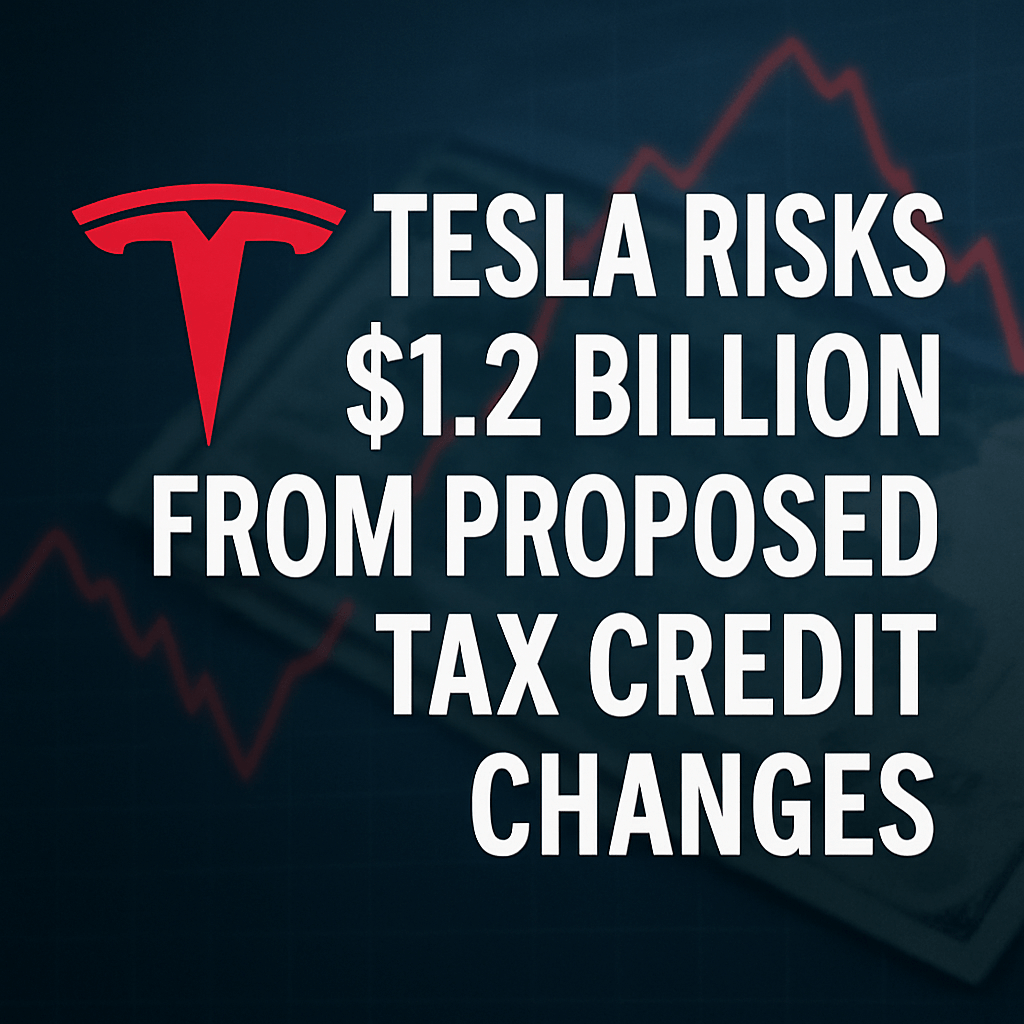Tesla Risks $1.2 Billion from Proposed Tax Credit Changes

A looming tax credit overhaul as part of President Donald Trump’s tax bill poses significant implications for Tesla Inc., the electric vehicle (EV) leader founded by Elon Musk. Analysts at JPMorgan have highlighted that the potential elimination of credits, worth up to $7,500 for EV purchasers, could cost Tesla approximately $1.2 billion in profit this year alone.
The Impact of the Proposed Tax Bill
The significant tax reform proposed by the Trump administration plans to phase out tax credits for clean vehicles and electric production by 2025, which is seven years earlier than initially scheduled. The implications of this are substantial; Tesla relies heavily on these credits to incentivize buyers and maintain a competitive edge in the increasingly crowded EV market.
JPMorgan’s Analysis on Tesla’s Earnings at Risk
According to a report by analysts led by Ryan Brinkman at JPMorgan, the measures discussed in the tax bill combined with other legislative actions create a potential headwind that threatens approximately half of the expected $6 billion in earnings before interest and taxes (EBIT) for Tesla this year. This may drastically alter Tesla’s profitability and growth narratives in the eyes of investors and analysts alike.
Elon Musk’s Response and Lobbying Efforts
Elon Musk, who recently stepped down from his advisory role within the White House, has taken a vocal stance against the proposed tax measures, labeling the bill as a “disgusting abomination.” His lobbying efforts extend to direct appeals to key Republican lawmakers, including House Speaker Mike Johnson, in a bid to save the EV tax credits that are vital for both Tesla and the broader EV market.
Additional Regulatory Challenges
In addition to the threats posed by the tax reforms, Tesla faces challenges on other fronts. Legislation targeting California’s stringent EV sales mandates could also jeopardize Tesla’s regulatory credit sales, presenting an additional risk of around $2 billion. This dual threat underscores the precarious landscape in which Tesla operates, as regulatory actions are increasingly determining the viability of its business model.
Broader Context: Clean Energy Policies and Market Dynamics
The potential rollback of EV incentives is particularly concerning given the progress made under the Biden administration’s Inflation Reduction Act, which aimed to bolster domestic clean energy production and supply chain resilience. This legislation facilitated a 7.3% increase in US EV sales last year, leading to a record 1.3 million vehicles sold according to data from Cox Automotive.
Tesla has established a significant manufacturing footprint in the U.S., with major facilities in Texas and California dedicated to car production, as well as a lithium refinery and battery manufacturing plants. The company’s investments are aligned with both the objectives of promoting clean energy and strengthening domestic supply chains, making the proposed tax bill’s changes particularly impactful.
Future Outlook for Tesla
- Investor Sentiment: The evolving political landscape concerning EV credits and clean energy policies will play a vital role in shaping investor sentiment regarding Tesla’s future profitability and strategic growth plans.
- Market Position: As competition intensifies across the EV sector, Tesla must navigate not only regulatory uncertainty but also increasing competition from traditional automakers pivoting to electrification.
- Global Initiatives: Tesla’s international expansions, particularly in emerging markets, may provide alternative growth avenues that could offset domestic regulatory risks.
As the discussions surrounding the tax bill and its impacts evolve, stakeholders including investors, industry analysts, and Tesla’s management will be closely monitoring the developments. The outcome will ultimately influence Tesla’s financial outlook as it seeks to maintain its market leadership in the electric vehicle arena.